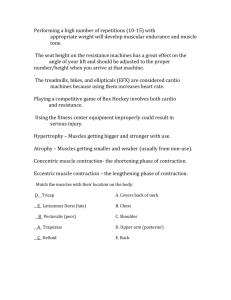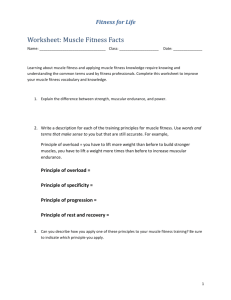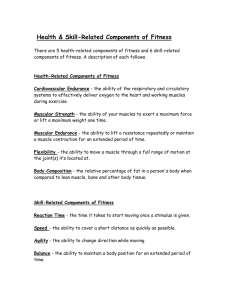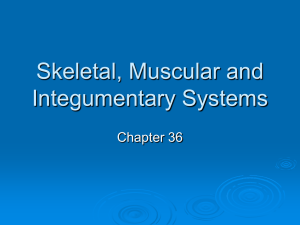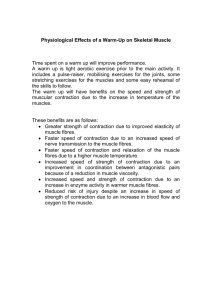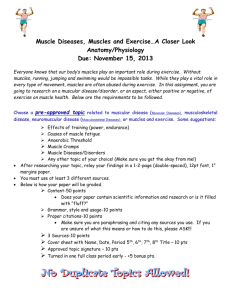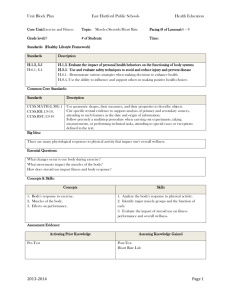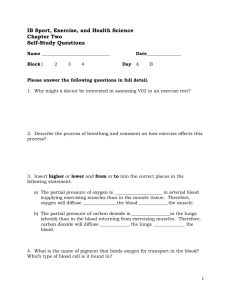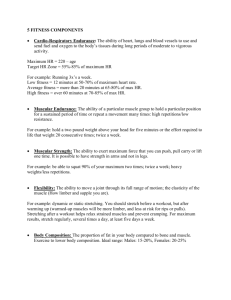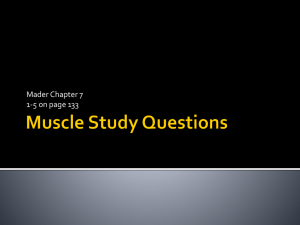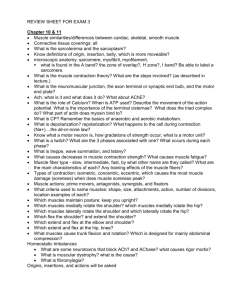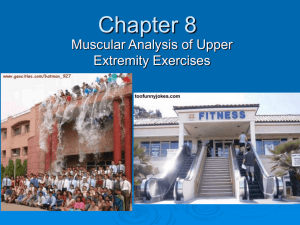edexcel pe - Trinity School Nottingham
advertisement
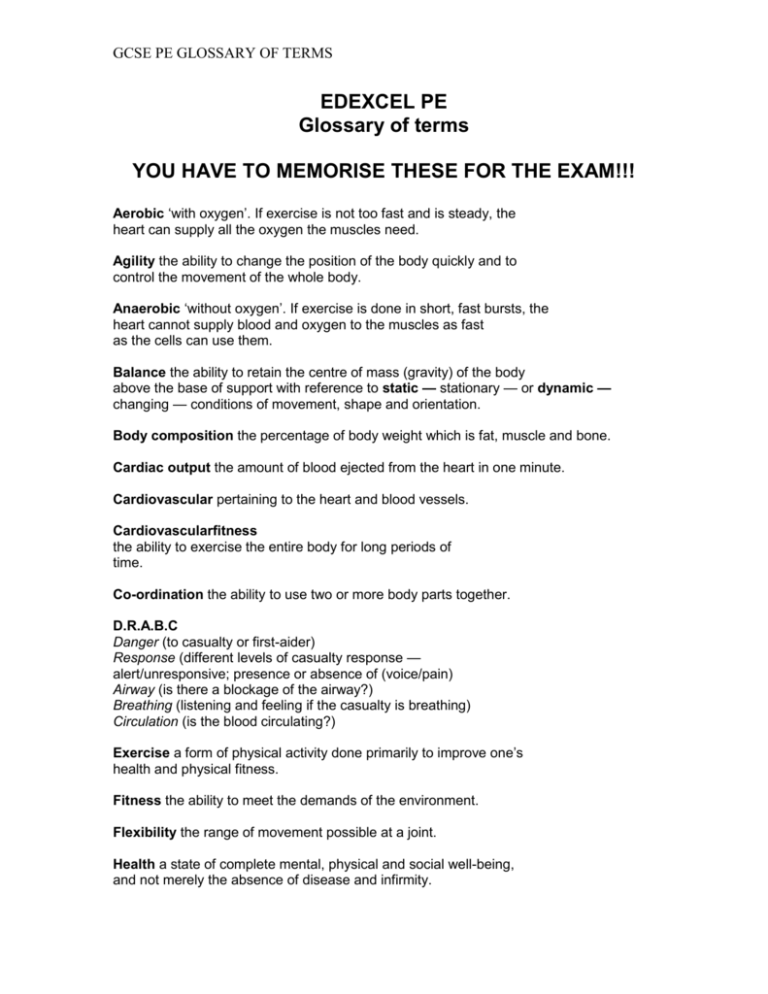
GCSE PE GLOSSARY OF TERMS EDEXCEL PE Glossary of terms YOU HAVE TO MEMORISE THESE FOR THE EXAM!!! Aerobic ‘with oxygen’. If exercise is not too fast and is steady, the heart can supply all the oxygen the muscles need. Agility the ability to change the position of the body quickly and to control the movement of the whole body. Anaerobic ‘without oxygen’. If exercise is done in short, fast bursts, the heart cannot supply blood and oxygen to the muscles as fast as the cells can use them. Balance the ability to retain the centre of mass (gravity) of the body above the base of support with reference to static — stationary — or dynamic — changing — conditions of movement, shape and orientation. Body composition the percentage of body weight which is fat, muscle and bone. Cardiac output the amount of blood ejected from the heart in one minute. Cardiovascular pertaining to the heart and blood vessels. Cardiovascularfitness the ability to exercise the entire body for long periods of time. Co-ordination the ability to use two or more body parts together. D.R.A.B.C Danger (to casualty or first-aider) Response (different levels of casualty response — alert/unresponsive; presence or absence of (voice/pain) Airway (is there a blockage of the airway?) Breathing (listening and feeling if the casualty is breathing) Circulation (is the blood circulating?) Exercise a form of physical activity done primarily to improve one’s health and physical fitness. Fitness the ability to meet the demands of the environment. Flexibility the range of movement possible at a joint. Health a state of complete mental, physical and social well-being, and not merely the absence of disease and infirmity. GCSE PE GLOSSARY OF TERMS Heart rate the number of times the heart beats each minute. Isometric contractions muscle contraction which results in increased tension but the length does not alter, eg, when pressing against a stationary object. Isotonic contraction muscle contraction that results in limb movement. Joint a place where two or more bones meet. Muscle tone voluntary muscles in a state of very slight tension, ready and waiting to be used. Muscular endurance the ability to use voluntary muscles, many times without getting tired. Muscular strength the amount of force a muscle can exert against a resistance. Obese a term used to describe people who are very overfat. Overload fitness can only be improved through training more than you normally do. Overfat a way of saying you have more body fat than you should have. Overweight having weight in excess of normal. Not harmful unless accompanied by overfatness. Oxygen debt the amount of oxygen consumed during recovery above that which would have ordinarily been consumed in the same time at rest (this results in a shortfall in the oxygen available). Performance how well a task is completed. Power the ability to do strength performances quickly. Power = Strength x Speed. Progression start slowly and gradually increase the amount of exercise you do. Reaction time the time between the presentation of a stimulus and the onset of a movement. Reversibility any adaptation that takes place as a consequence of training will be reversed when you stop training. R.I.C.E Rest, Ice, Compression, Elevation. Specificity you must do specific kinds of activity or exercise to build specific body parts. GCSE PE GLOSSARY OF TERMS Speed the differential rate at which an individual is able to perform a movement or cover a distance in a period of time. Stroke volume the volume of blood pumped out of the heart by each ventricle during one contraction. Tidal volume the amount of air breathed in or out of the lungs in one breath. Training a well-planned programme which uses scientific principles to improve performance, skill, game ability and motor and physical fitness. Vital capacity the maximum amount of air that can be forcibly exhaled after breathing in as much as possible.
